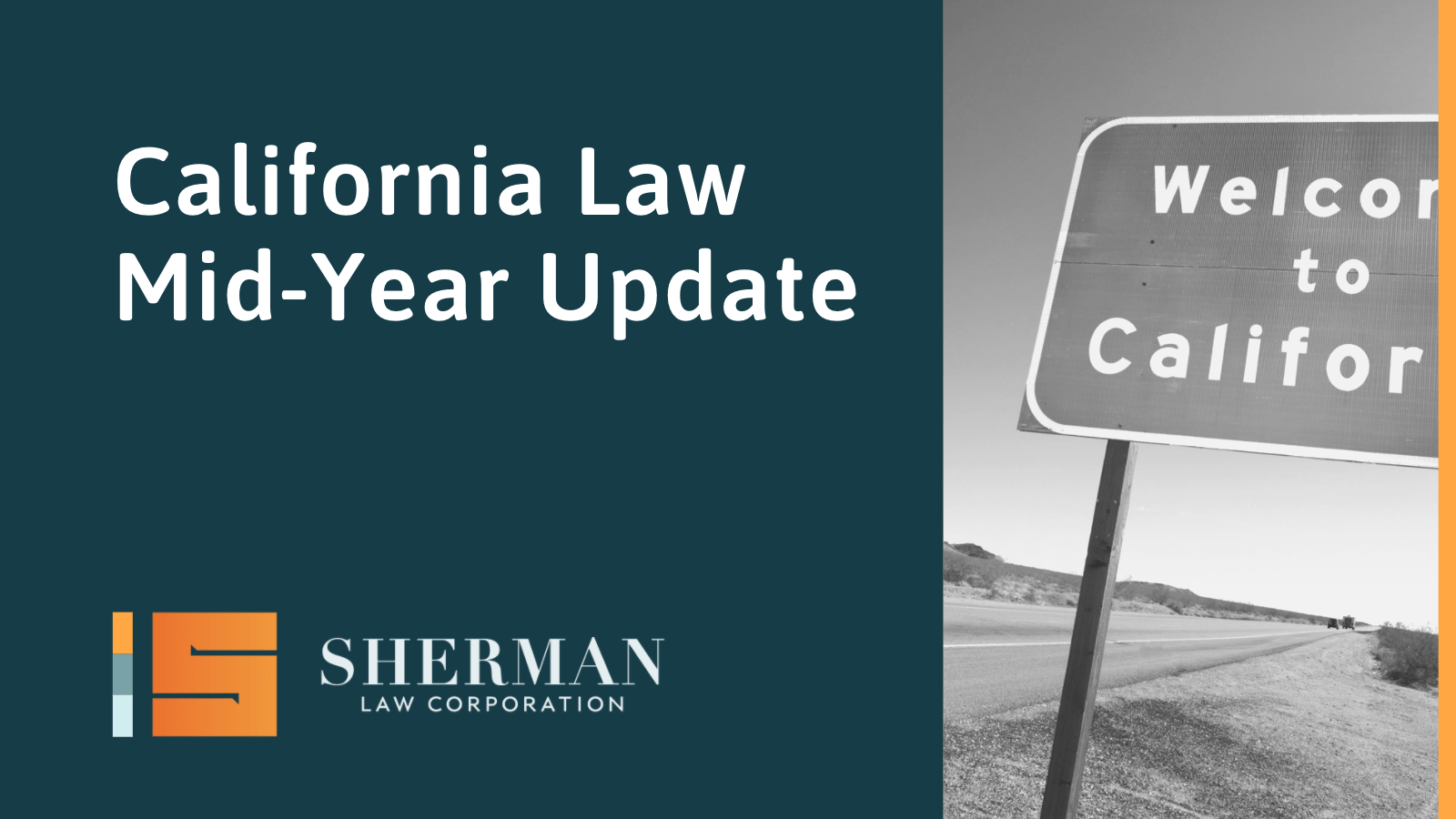
The newest labor and employment laws for the first half of 2021 ever employer should know about:
1. Minimum Wage Increase
Pursuant to Senate Bill 3, the minimum wage will increase annually until 2023. Effective January 1, 2021, the minimum hourly wage for employers with 26 or more employees has increased from $13 to $14, and the overtime wage and the minimum salary threshold for exemptions have also increased from $54,080 to $58,240.
Increasing the minimum wage will also affect the minimum wage requirements for exempt employees. Therefore, employers are encouraged to review their employees’ exempt status.
2. Expanding the California Family Rights Act
The California Family Rights Act (CFRA) authorizes job-protected family and medical leave for eligible California employees up to a total of 12 weeks. Prior to January 1, 2021, the CFRA applied to employers with 50 or more employees. However, pursuant to Senate Bill 1383, effective January 1, 2021, CFRA’s family and medical leave requirements also apply to small businesses with five or more employees.
To be eligible for the CFRA leave, a California employee must:
1) have worked with the employer for at least 12 months, and
2) have worked for the employer for at least 1,250 hours in the last 12 months.
In addition, Senate Bill 1383 expanded the rights by granting CFRA leave to employees to care for grandparents, grandchildren, or domestic partner with a serious health condition. Therefore, employers with five or more employees must update their handbooks and train on the requirements under CFRA.
3. Pay Data Reporting
Beginning in 2021, Senate Bill 973 requires employers that have 100 or more employees and need to file an EEO-1 report under federal law to report pay and other data to the California Department of Fair Employment and Housing (DFEH).
If you fall into any of the ten job categories listed by the DFEH, your report must include the number of employees and work hours by race, ethnicity, and sex. Additionally, these employees’ annual incomes must be within each of the pay bands used by the U.S. Bureau of Labor Statistics in the Occupational Employment Survey.
Employers are required to submit pay and other data reports to the DFEH on March 31 of each year. On its website, the DFEH has published a description and guidance for employers on who should qualify as employees.
4. COVID-19 Supplemental Paid Sick Leave in California
Senate Bill 95 became effective on March 29, 2021. This bill requires employers to grant supplemental paid sick leave to employees for COVID-19 related reasons.
It also requires employers with 25 or more employees nationwide to provide up to an additional 80 hours of paid sick leave to employees in California. In addition, the following reasons have been added to qualify for paid sick leave:
(1) attending an appointment to receive a vaccine for protection against contracting COVID-19;
(2) experiencing symptoms related to a COVID-19 vaccine that prevent the employee from being able to work or telework;
3) caring for a family member who is subject to a quarantine or isolation period related to COVID-19 or has been advised by a healthcare provider to self-quarantine due to concerns related to COVID-19; and
(4) school or place of care is closed or otherwise unavailable for reasons related to COVID-19 on the premises. This bill was enacted in March 2021 but shall apply retroactively to January 1, 2021. Employers are therefore encouraged to reconsider their employees’ COVID-19-related leave requests.
For more information, please feel free to contact Lisa Sherman at (323) 488-2087 or lisa@sherm-law.com




